
Performing in the intimacy of the Birdland Jazz Club in 2011, New York innovative pianist Cecil Taylor met with London free jazz legendary percussionist and long-time associate in The Feel Trio, Tony Oxley, Taylor's rapid often percussive approach to the keys pairing with Oxley's percussive work, and both invoking lyrical beauty from the other.
In Stock
Quantity in Basket: None
Log In to use our Wish List
Shipping Weight: 4.00 units
EU & UK Customers:
Discogs.com can handle your VAT payments
So please order through Discogs
Sample The Album:
Cecil Taylor-piano
Tony Oxley-percussion
Click an artist name above to see in-stock items for that artist.
UPC: 5905279364714
Label: Listen! Foundation (Fundacja Sluchaj!)
Catalog ID: FSR 13 | 2020
Squidco Product Code: 29291
Format: CD
Condition: New
Released: 2020
Country: Poland
Packaging: Cardboard Gatefold
Recorded at Birdland in Neuburg an der Donau, Germany, on November 18th, 2011, by Klaus Billmeier.
"It was a rare moment - the evening of November 18, 2011. A moment of special intimacy. European fans of pianist Cecil Taylor got closer to him than ever before. It wasn't like a few years ago, when some 1000 listeners gathered in the Prinzregenten Theater in Munich; now only exactly 112 fans gathered in the Birdland Jazz Club in not very far away Neuburg an der Donau. Neuburg is a city dating back to the Renaissance with 28,000 residents, midway between Munich and Nuremberg. For the past few decades the local jazz club, with its unusually well-developed program, has drawn music fans from a wide circle to its current beautiful room in an historic basement vault. Up front - Cecil Taylor, the small, slight man with great energy, the master of free sounds that rumble like thunder but also tinkle like splintering glass. What a contrast! And what a musical experience!
In my role as the person responsible from the Bayerischer Rundfunk broadcasting service for this recording, I had begun this experience in the afternoon as Cecil Taylor was warming up. For two hours the 82-year-old musician sat there at the piano, with his shirttails hanging out, wearing very large white sneakers, running through chords, chromatic eruptions, and fast monophonic sections. He worked meticulously as he sensed the place in the music and prepared himself for the moment of entry. Again and again he played similar figures, and it seemed as though he were sorting out the material for improvisation in the evening together with percussionist Tony Oxley, one of his long-time companions.
Then to the concert. Significant tension leading from a seemingly soft passage, feeling its way, and then again and again rising to energy-laden high points. Whirling melodies, clusters, bass figures like the one of the "gnome" in Mussorgsky's Pictures at an Exhibition, all together with the rumbling anarcho-percussion of Tony Oxley's drum set arranged in an unusual manner. In one part of around 40 minutes and another of about 15 minutes of music, plus a recitation of lyrical texts accompanied by drum, the concert came to a compelling high point of tension. By the way: Cecil Taylor used notes, not musical "notes," but notations that Cecil Taylor had in front of him - mainly capital letters that he had written one above the other and that were probably the names of notes. These towers of letters resulted in crooked descending lines on full-size sheets lying across one another, with the lines growing ever smaller. What was a wild, disordered landscape of penciled and red marker lines was really the outline for what we heard that evening from Taylor on the jazz club's Bösendorfer piano.
Like a giant wave that drags more and more material along with it, growing and unfolding in unpredictable power, in the first section the energy and dynamics of this concert duo grew enormously, and then this wave once again ebbed and formed gentle little islands. The second part began in the last quarter hour of the performance quite softly, virtually delicate for the way Taylor was playing. At the end of the concert he came back to this expressiveness, a type of music that has the effect of a poetic echo of Taylor's life work. Note the quite laconic ending figure of this performance!
The end of the concert was like the blinking of an eye. Like a self-ironic resolution of the previously bottled up tension. Cecil Taylor's music was here the experience of existence, a gruff unexpected seeking and finding of tones for the moment, an aesthetic that was unconditionally radical. However, Taylor's radicality was combined in this special moment of his late work with a surprisingly relaxed mood. The wild man at the piano presented himself with an almost childlike playfulness. His music was perhaps gentler than usual, but in no way harmless; it was still a music without any compromises. I think that in this recording you can especially find enjoyment in the intimacy of the venue. You can hear in the sound of the recording that the room was relatively small, and you can hear from the applause that this was just a small audience enjoying an exceptional experience. It is wonderful that now more people can share this music!"-Roland Spiegel, music editor of Bayerischer Rundfunk, March 2020

The Squid's Ear!
Artist Biographies
• Show Bio for Cecil Taylor "Cecil Percival Taylor (March 25, 1929 - April 5, 2018) was an American pianist and poet. Classically trained, Taylor is generally acknowledged as having been one of the pioneers of free jazz. His music is characterized by an extremely energetic, physical approach, producing complex improvised sounds, frequently involving tone clusters and intricate polyrhythms. His piano technique has been likened to percussion, for example described as "eighty-eight tuned drums" (referring to the number of keys on a standard piano). He has also been described as "like Art Tatum with contemporary-classical leanings". Taylor was raised in the Corona, Queens neighborhood of New York City. As an only child to a middle-class family, Taylor's mother encouraged him to play music at an early age. He began playing piano at age six and went on to study at the New York College of Music and New England Conservatory. At the New England Conservatory, Taylor majored in composition and arranging. During his time there, he also became familiar with contemporary European art music. Bartok and Stockhausen notably influenced his music. In 1955, Taylor moved from Boston to New York City. He formed a quartet with soprano saxophonist, Steve Lacy, the bassist Buell Neidlinger, and drummer Dennis Charles. Taylor's first recording, Jazz Advance, featured Lacy and was released in 1956. It is described by Cook and Morton in the Penguin Guide to Jazz: "While there are still many nods to conventional post-bop form in this set, it already points to the freedoms in which the pianist would later immerse himself." Taylor's Quartet featuring Lacy also appeared at the 1957 Newport Jazz Festival which went on to be made into the album At Newport. He collaborated with saxophonist John Coltrane in 1958 (Stereo Drive, currently available as Coltrane Time). 1950s and 1960s Throughout the 1950s and 1960s, Taylor's music grew more complex and moved away from existing jazz styles. Gigs were often hard to come by, and club owners found Taylor's approach to performance (long pieces) unhelpful in conducting business. His 1959 LP Looking Ahead!, showcased his innovation as a creator in comparison to the jazz mainstream. Unlike others at the time, Taylor utilized virtuosic techniques and made swift stylistic shifts from phrase to phrase. These qualities, among others, still remain notable distinctions of Taylor's music today. Landmark recordings, like Unit Structures (1966), also appeared. With 'the Unit', musicians developed often volcanic new forms of conversational interplay. In the early 1960s, an uncredited Albert Ayler worked for a time with Taylor, jamming and appearing on at least one recording, Four, unreleased until 2004. By 1961, Taylor was working regularly with alto saxophonist Jimmy Lyons, one of his most important and consistent collaborators. Taylor, Lyons and drummer Sunny Murray (and later Andrew Cyrille) formed the core personnel of The Unit, Taylor's primary group effort until Lyons's premature death in 1986. Lyons's playing, strongly influenced by jazz icon Charlie Parker, retained a strong blues sensibility and helped keep Taylor's increasingly avant garde music tethered to the jazz tradition. Solo concerts Taylor began to perform solo concerts in the second half of the sixties. The first known recorded solo performance (by Dutch radio) was 'Carmen With Rings' (59 min.) in De Doelen concert hall in Rotterdam on July 1, 1967. Two days before Taylor had played the same composition in the Amsterdam Concertgebouw. Many of the later concerts were released on album and include Indent (1973), side one of Spring of Two Blue-J's (1973), Silent Tongues (1974), Garden (1982), For Olim (1987), Erzulie Maketh Scent (1989) and The Tree of Life (1998). He began to garner critical, if not popular, acclaim, playing for Jimmy Carter on the White House Lawn, lecturing as an in-residence artist at universities, and eventually being awarded a Guggenheim Fellowship in 1973 and then a MacArthur Fellowship in 1991. 1990s and the Feel Trio Following Lyons's death in 1986 Taylor formed the Feel Trio in the early 1990s with William Parker (bass) and Tony Oxley (drums); the group can be heard on Celebrated Blazons, Looking (Berlin Version) The Feel Trio and the 10-CD set 2 T's for a Lovely T. Compared to his prior small groups with Jimmy Lyons, the Feel Trio had a more abstract approach, tethered less to jazz tradition and more aligned with the ethos of European free improvisation. He also performed with larger ensembles and big-band projects. His extended residence in Berlin in 1988 was extensively documented by the German label FMP, resulting in a massive boxed set of performances in duet and trio with a who's who of European free improvisors, including Oxley, Derek Bailey, Evan Parker, Han Bennink, Tristan Honsinger, Louis Moholo, Paul Lovens, and others. Most of his latter day recordings have been put out on European labels, with the exception of Momentum Space (a meeting with Dewey Redman and Elvin Jones) on Verve/Gitanes. The classical label Bridge released his 1998 Library of Congress performance Algonquin, a duet with violinist Mat Maneri. Taylor continued to perform for capacity audiences around the world with live concerts, usually played on his favored instrument, a Bösendorfer piano that features nine extra lower-register keys. A documentary entitled All the Notes, was released on DVD in 2006 by director Chris Felver. Taylor was also featured in an earlier documentary film Imagine the Sound (1981), in which he discusses and performs his music, poetry and dance. 2000s At Moers Festival 2008 Taylor recorded sparingly in the 2000s, but continued to perform with his own ensembles (the Cecil Taylor Ensemble and the Cecil Taylor Big Band) as well as with other musicians such as Joe Locke, Max Roach, and the poet Amiri Baraka. In 2004, the Cecil Taylor Big Band at the Iridium 2005 was nominated a best performance of 2004 by All About Jazz, and the same in 2009 for the Cecil Taylor Trio at the Highline Ballroom in 2009. The trio consisted of Taylor, Albey Balgochian, and Jackson Krall. At time of Taylor's death in 2018A an autobiography, further concerts, and other projects were in the works. In 2010, Triple Point Records released a deluxe limited edition double LP titled Ailanthus/Altissima: Bilateral Dimensions of Two Root Songs, a set of duos with long-time collaborator Tony Oxley that was recorded live at the Village Vanguard in New York City. In 2013, he was awarded the Kyoto Prize for Music. In 2014, his career and 85th birthday were honored at the Painted Bride Art Center in Philadelphia with the tribute concert event "Celebrating Cecil". In 2016 he received a retrospective at the Whitney Museum of American Art entitled Open Plan: Cecil Taylor. Taylor, along with dancer Min Tanaka was the subject of Amiel Courtin-Wilson's 2016 documentary film "The Silent Eye". Ballet and dance In addition to piano, Taylor was always interested in ballet and dance. His mother, who died while he was still young, was a dancer and also played the piano and violin. Taylor once said: "I try to imitate on the piano the leaps in space a dancer makes." He collaborated with dancer Dianne McIntyre in the late 70s and early 80s. In 1979 he also composed and played the music for a twelve-minute ballet "Tetra Stomp: Eatin' Rain in Space", featuring Mikhail Baryshnikov and Heather Watts. Poetry Taylor was a poet, citing Robert Duncan, Charles Olson and Amiri Baraka as major influences. He often integrated his poems into his musical performances, and they frequently appear in the liner notes of his albums. The CD Chinampas, released by Leo Records in 1987, is a recording of Taylor reciting several of his poems, accompanying himself on percussion. Influence and musical style According to Steven Block, free jazz originated with the performances of Cecil Taylor at the Five Spot Cafe in 1957 and Ornette Coleman in 1959. In 1964, Taylor co-founded the Jazz Composers Guild to enhance the working possibilities of avant-garde jazz musicians. Taylor's style and methods have been described as 'constructivist'. Despite Scott Yanow's warning regarding Taylor's "forbidding music": Suffice it to say that Cecil Taylor's music is not for everyone he goes on to praise Taylor's "remarkable technique and endurance," and his "advanced", "radical", "original", and uncompromising "musical vision." This vision is one of Taylor's greatest influences upon others: Playing with Taylor I began to be liberated from thinking about chords. I'd been imitating John Coltrane unsuccessfully and because of that I was really chord conscious. - Archie Shepp, quoted in LeRoi Jones, album liner notes for Four for Trane (Impulse A-71, 1964). Personal life In 1982, jazz critic Stanley Crouch outed Taylor as being gay, prompting an angry response. However, Taylor never denied it. In 1991, Taylor told a New York Times reporter "[s]omeone once asked me if I was gay. I said, 'Do you think a three-letter word defines the complexity of my humanity?' I avoid the trap of easy definition." Taylor moved to Fort Greene, Brooklyn in 1983. Death Taylor died on April 5. 2018 at tbe age of 89." ^ Hide Bio for Cecil Taylor • Show Bio for Tony Oxley "Tony Oxley (born 15 June 1938) is an English free-jazz drummer and one of the founders of Incus Records. ony Oxley was born in Sheffield, England. A self-taught pianist by the age of eight, he first began playing the drums at seventeen. In Sheffield he was taught by well respected local drummer Haydon Cook, who had returned to the city after a long residency, in the 1950s, at Ronnie Scotts in London. While in the Black Watch military band from 1957 to 1960 he studied music theory and improved upon his drumming technique. From 1960 to 1964 he led his own quartet which performed locally in England, and in 1963 he began working with Gavin Bryars and guitarist Derek Bailey in a trio known as Joseph Holbrooke. Oxley moved to London in 1966 and became house drummer at Ronnie Scott's, where he accompanied visiting musicians such as Joe Henderson, Lee Konitz, Charlie Mariano, Stan Getz, Sonny Rollins and Bill Evans until the early 1970s. He was also a member of various groups led by musicians such as Gordon Beck, Alan Skidmore and Mike Pyne. In 1969 Oxley appeared on the recording of the later released John McLaughlin album Extrapolation and also formed his own quintet consisting of Derek Bailey, Jeff Clyne, Evan Parker and Kenny Wheeler, releasing the album The Baptised Traveller. Following this album the group was joined by Paul Rutherford on trombone and became a sextet, releasing the 1970 album 4 Compositions for Sextet. That same year Oxley helped found Incus Records along with Bailey and others and also the Musicians Cooperative. He also received a three-month "artist-in-residence" at the Sydney Conservatorium in Australia in 1970. Around this time he joined the London Jazz Composers Orchestra and also got involved with collaborations with Howard Riley. In 1973 he became a tutor at the Jazz Summer School in Barry, South Wales, and in 1974 he formed another group of his own known as Angular Apron. Through the 1980s he worked with various musicians, including Tony Coe and Didier Levallet, also forming his own Celebration Orchestra during the latter half of that decade. Oxley also did extensive touring with Anthony Braxton in 1989, and also began a long-lasting working relationship with Cecil Taylor during this period.Oxley at the Moers Festival, Germany, in 2008 In 1993 he joined an international quartet that included Tomasz Sta ko, Bobo Stenson, and Anders Jormin, and in 2000 he released the album Triangular Screen with the Tony Oxley Project 1, a trio with Ivar Grydeland and Tonny Kluften." ^ Hide Bio for Tony Oxley
7/1/2025
Have a better biography or biography source? Please Contact Us so that we can update this biography.
7/1/2025
Have a better biography or biography source? Please Contact Us so that we can update this biography.
Track Listing:
1. Birdland, Neuburg Part 1 41:58
2. Birdland, Neuburg Part 2 16:02
Improvised Music
Jazz
Free Improvisation
NY Downtown & Metropolitan Jazz/Improv
London & UK Improv & Related Scenes
Duo Recordings
Piano & Keyboards
Percussion & Drums
Staff Picks & Recommended Items
Top Sellers for 2020 by Customer Sales
Search for other titles on the label:
Listen! Foundation (Fundacja Sluchaj!).

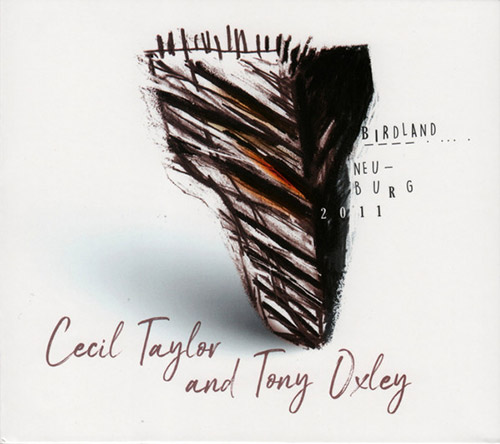


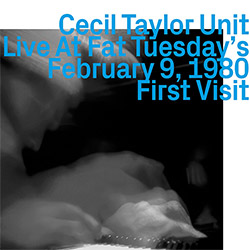


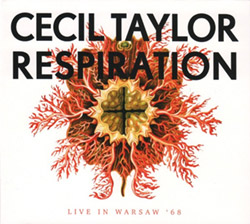
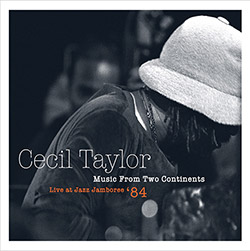
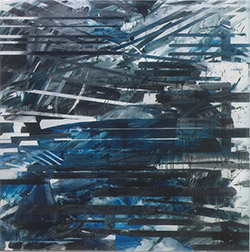





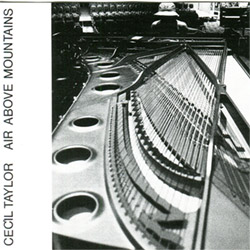


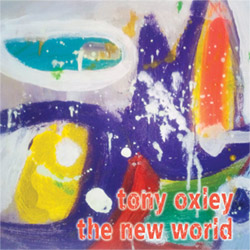
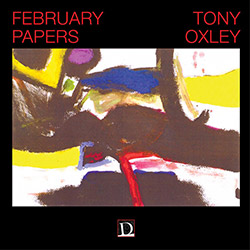

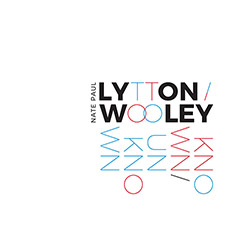
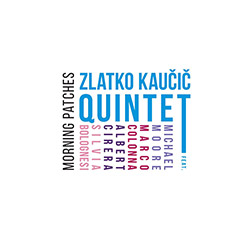















![Deupree, Jerome / Sylvie Courvoisier / Lester St. Louis / Joe Morris: Canyon [2 CDs]](https://www.teuthida.com/productImages/misc4/36404.jpg)


![Eternities: Rides Again [CASSETTE]](https://www.teuthida.com/productImages/misc4/36247.jpg)

![Lopez, Francisco: Untitled (2021-2022) [2 CDs]](https://www.teuthida.com/productImages/misc4/36438.jpg)




![Eventless Plot | Haarvol: The Subliminal Paths [CASSETTE + DOWNLOAD]](https://www.teuthida.com/productImages/misc4/36232.jpg)












![Eventless Plot | Francesco Covarino: Methexis [CASSETTE + DOWNLOAD]](https://www.teuthida.com/productImages/misc4/36231.jpg)



![Das B (Mazen Kerbaj / Mike Majkowski / Magda Mayas / Tony Buck): Love [VINYL]](https://www.teuthida.com/productImages/misc4/36329.jpg)



![Hemphill Stringtet, The: Plays the Music of Julius Hemphill [VINYL]](https://www.teuthida.com/productImages/misc4/36409.jpg)



![Halvorson, Mary Septet: Illusionary Sea [2 LPS]](https://www.teuthida.com/productImages/misc4/17952.jpg)





![Money : Money 2 [2 CDs]](https://www.teuthida.com/productImages/misc4/35894.jpg)




![Klinga, Erik: Elusive Shimmer [VINYL]](https://www.teuthida.com/productImages/misc4/36258.jpg)
![CHANGES TO blind (Phil Zampino): Volume 9 - I Wave on a Fine Vile Mist [CD + DOWNLOAD]](https://www.teuthida.com/productImages/misc4/36061.jpg)

![Wallmart / Rubbish: Asset Protection [split CD]](https://www.teuthida.com/productImages/misc4/35900.jpg)


![+Dog+: The Family Music Book Vol. 5 [2 CDs]](https://www.teuthida.com/productImages/misc4/35897.jpg)
![Kuvveti, Deli : Kuslar Soyledi [CASSETTE w/ DOWNLOAD]](https://www.teuthida.com/productImages/misc4/36107.jpg)

![Nakayama, Tetsuya: Edo Wan [CASSETTE w/ DOWNLOAD]](https://www.teuthida.com/productImages/misc4/36105.jpg)




![Yiyuan, Liang / Li Daiguo: Sonic Talismans [VINYL]](https://www.teuthida.com/productImages/misc4/35957.jpg)
![Brown, Dan / Dan Reynolds: Live At The Grange Hall [unauthorized][CASSETTE]](https://www.teuthida.com/productImages/misc4/36245.jpg)








![Palestine, Charlemagne / Seppe Gebruers: Beyondddddd The Notessssss [VINYL]](https://www.teuthida.com/productImages/misc4/36206.jpg)
![Palestine, Charlemagne / Seppe Gebruers: Beyondddddd The Notessssss [NEON GREEN VINYL]](https://www.teuthida.com/productImages/misc4/36207.jpg)

![Laubrock, Ingrid: Purposing The Air [2 CDs]](https://www.teuthida.com/productImages/misc4/35639.jpg)

![Yoko, Ono / The Great Learning Orchestra: Selected Recordings From Grapefruit [2 CDs]](https://www.teuthida.com/productImages/misc4/35841.jpg)









![Zorn, John / JACK Quartet: The Complete String Quartets [2 CDs]](https://www.teuthida.com/productImages/misc4/35609.jpg)

![Lonsdale, Eden: Dawnings [2 CDs]](https://www.teuthida.com/productImages/misc4/35480.jpg)



![Sorry For Laughing (G. Whitlow / M. Bates / Dave-Id / E. Ka-Spel): Rain Flowers [2 CDS]](https://www.teuthida.com/productImages/misc4/35985.jpg)

![Rolando, Tommaso / Andy Moor : Biscotti [CASSETTE w/ DOWNLOADS]](https://www.teuthida.com/productImages/misc4/36106.jpg)


![Electric Bird Noise / Derek Roddy: 8-10-22 [CD EP]](https://www.teuthida.com/productImages/misc4/35970.jpg)








![Elephant9 : Mythical River [VINYL]](https://www.teuthida.com/productImages/misc4/34624.jpg)



![Elephant9 with Terje Rypdal: Catching Fire [VINYL 2 LPs]](https://www.teuthida.com/productImages/misc4/35355.jpg)
![Deerlady (Obomsawin, Mali / Magdalena Abrego): Greatest Hits [VINYL]](https://www.teuthida.com/productImages/misc4/34876.jpg)







![Surplus 1980: Illusion of Consistency [CD]](https://www.teuthida.com/productImages/misc4/35069.jpg)
![Staiano, Moe: Away Towards the Light [VINYL + DOWNLOAD]](https://www.teuthida.com/productImages/misc4/35037.jpg)
![Coley, Byron: Dating Tips for Touring Bands [VINYL]](https://www.teuthida.com/productImages/misc4/17906.jpg)

![Lost Kisses: My Life is Sad & Funny [DVD]](https://www.teuthida.com/productImages/misc4/lostKissesDVD.jpg)